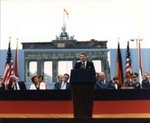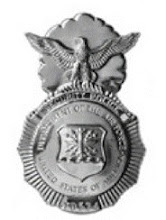Read his words and be in his head as he made the decision in this incident that probably saved America as a sovereign nation. America became involved in another Monroe Doctrine situation in the Spanish-American War of 1898. These two incidents represented the end of European colonialism in the Western Hemisphere. I spent the last two days reading this book and I have gained a great respect for Cleveland as a president. Most historians state that his first term (1885-1889) was good, his second, not so good. I beg to differ.
He was confronted in his second term (1893-1897) with a massive economic problem. He took measures that stabilized the economy, but he didn't receive the credit. He fought the gold crisis by enlisting the aid of J.P. Morgan and the rest of the evil bankers. They came through for the country and bought over $100 million of government bonds, to keep the gold reserve above the dangerous level of $100 million. Cleveland was a good president and he deserves a place in the pantheon of those presidents who took action to save the republic and succeeded. Here are the last words of his book. Read and enjoy:
But those among us who most loudly reprehended and bewailed our vigorous assertion of the Monroe Doctrine were the timid ones who feared personal financial loss, or those engaged in speculation and stock-gambling, in buying much beyond their ability to pay, and generally in living by their wits. The patriotism of such peoples traverses exclusively the pocket nerve. They are willing to tolerate the Monroe Doctrine, or any other patriotic principle, so long as it does not interfere with their plans, and are just as willing to cast it off when it becomes troublesome.
But these things are as nothing when weighed against the sublime patriotism and devotion to their nation's honor exhibited by the great mass or our countrymen--the plain people of the land. Though, in the case of the last extremity, the changes and suffering of conflict would have fallen to their lot, nothing blinded them to the manner in which the integrity of their country was involved. Not for a single moment did their government know the lack of their strong and stalwart support.
I hope there are but few of our fellow-citizens who, in retrospect, do not now acknowledge the good that has come to our nation through this episode in our history. It has established the Monroe Doctrine on lasting foundations before the eyes of the world; it has given us a better place in the respect and consideration of the people of all nations, and especially of Great Britain; it has again confirmed our confidence in the overwhelming prevalence among our citizens of disinterested devotion to American honor; and last, but by no means least, it has taught us where to look in the ranks of our contrymen for the best patriotism.










4 comments:
Great post as usual...L&O teach....I am overwhelmed when it comes to history...I can read it all day and not get tired of it....but when it comes to the present day crowd....they are not that interesting except for two opposites....Gingrich and Horowitz. stay well...
But those among us who most loudly reprehended and bewailed our vigorous assertion of the Monroe Doctrine were the timid ones who feared personal financial loss, or those engaged in speculation and stock-gambling, in buying much beyond their ability to pay, and generally in living by their wits. The patriotism of such peoples traverses exclusively the pocket nerve. They are willing to tolerate the Monroe Doctrine, or any other patriotic principle, so long as it does not interfere with their plans, and are just as willing to cast it off when it becomes troublesome.
------------------------
Damn, he nailed that, nice find. Where he went wrong was not realizing that power would become concentrated in this class to the virtual exclusion of the rest of the nation.
We all know Steve, that most so-called "Historians" look at much data from the left side of the page....and with some study can cut right through the BS they toss out.
Having said that, I've never thought much of Grover Cleveland(except to know he was outvoted and won anyway)...maybe now I'll take the time to get to know him better.
See you in 3 weeks!
Tap,
Thanks for the visit. History has so much to teach us. I agree that Newt is a historian with a lot to offer. His books are well written and educational. He's got a lot of good ideas, but he would have trouble being elected. Horowitz is a very interesting guy. I like to hear his point of view. He's certainly different point of view.
Ducky,
Thanks as usual for your comment. Your point is well taken. He was prescient in his condemnation of those fair weather supporters, or as Thomas Paine called them the "summer soldier" and the "sunshine patriot." As for your point, power corrupts, hence the constitution is necessary to keep people under control. Jefferson's quote and one from Federalist 51, "If men were angels no government would be necessary."
Pat,
Thanks. Cleveland bears more study. He was one of only four candidates who lost despite getting more votes. Andrew Jackson, 1924, Samuel Tilden, 1876, Cleveland, 1888, and Gore, 2000. See you then.
Post a Comment